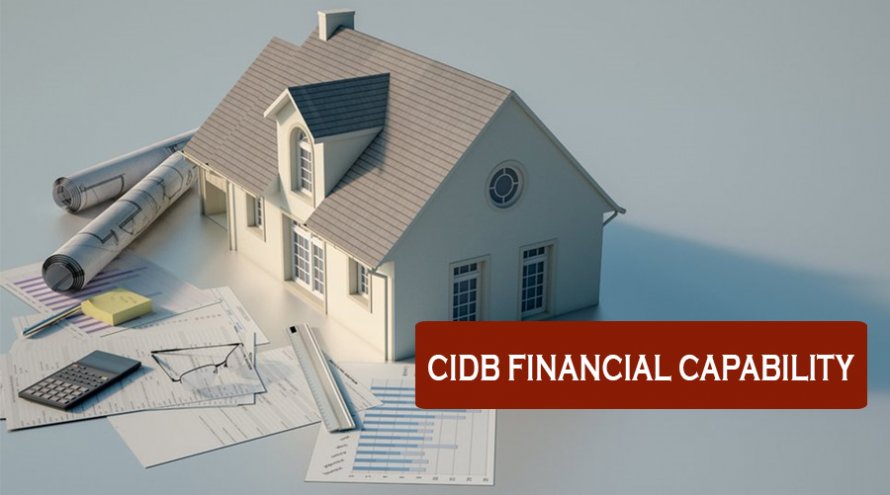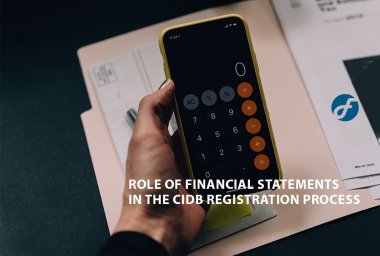-
AuthorFixonate Consulting
-
Comments0 Comments
-
Category
When registering for the CIDB grades 2 & higher, the CIDB starts introducing terms such as financial capability, works capability as well as available capital. If you are an engineer by trade, this can be daunting as these terms belong more the accounting lingual.
In this article, I will try to explain what financial capability means in as lay man’s terms as possible without confusing you with the accounting lingual. Financial capability simply refers to 3 measurement items that are to be found within your company’s financial statements.
Those terms are Revenue, Assets & Liabilities.
As I said, I do not want to use the accountant’s language and I will be breaking these into your everyday language use. Revenue refers to how much money your engineering firm made within the past 12 months of a financial year.
But before I lose here, accountants do not refer to Revenue as the actual money received in your bank but rather, the actual sales that you made within that particular financial year. Let me illustrate this with an example, Let’s say you scored one contract for the whole year with a contract value of R1 Million. And let’s assume that within that year, you only completed 80% of that project, the accountant will only recognize R800,000 as your revenue. They are not interested in whether that money came into your bank or not, as long as there is satisfactory proof that 80% of the project was completed and that you submitted an enforceable invoice.
So, what does this mean for the CIDB is that the CIDB will take into consideration your revenue figure in conjunction with other factors when deciding to upgrade you for any grade higher than 2.
The higher your revenue figure, the higher the CIDB grade you might qualify for as this demonstrates your financial capability to put financial resources together to carry out and finish future larger construction projects.
The second measurement item refers to your asset structure. Assets according to accountants include items such as building plant such as excavators, graders, water tanks, bomags, computer equipment, furniture, office fittings, office accessories, inventory such as cement & bricks on hand, invoices issued but not yet paid by your customers etc. The more of these assets you have, the greater your financial capacity score.
However, a third measurement factor comes into play here. There is no point in having engineering equipment but you owe a lot of money on it, and for this reason, the CIDB takes into consideration, the total amount of funds owed by your business in order to arrive at your net assets value. This amount is what the CIDB refers to as your equity within the business. In other words, if your business had to be sequestrated, how much of those assets would you remain with.
Now, since you are an engineer and not an accountant, this information might sound all too complicated to present to the CIDB, however, the CIDB does not need evidentiary proof of it. All this information is found in the balance sheet presented within your financial statements when applying for an upgrade.
Therefore, to wrap it up, your financial capability score will be measured solely on the financial statements presented to the CIDB by a qualified registered chartered accountant or another accountant in good standing with any of the accounting professionals controlling body.
If the CIDB doubts the information presented by the accountant in terms of your financial capability score, they might request for supplementary information, such as two year bank statements, statement of VAT submissions to the South African Revenue Services or financial reports issued by the governments basic accounting system for projects carried out in the public sector.
CIDB grades are awarded best on how well you score on the CIDB’s financial capabilities scale. The higher the score, the higher the CIDB grade. Contractors must not confuse financial capability score together with works capability.
The two are totally different items however, the main difference between the two, is that financial capability is used to measure your future financial capabilities whether works capability measures your past capabilities by looking at the actual highest project successfully completed by your firm within the past 5 financial years.
Take care and wishing you the best with your CIDB registration & Upgrade.
Leave A Comment Cancel reply
Recent Posts
-

-
 May 22, 2020
May 22, 2020 -

-
 May 14, 2020
May 14, 2020 -
 May 11, 2020
May 11, 2020




